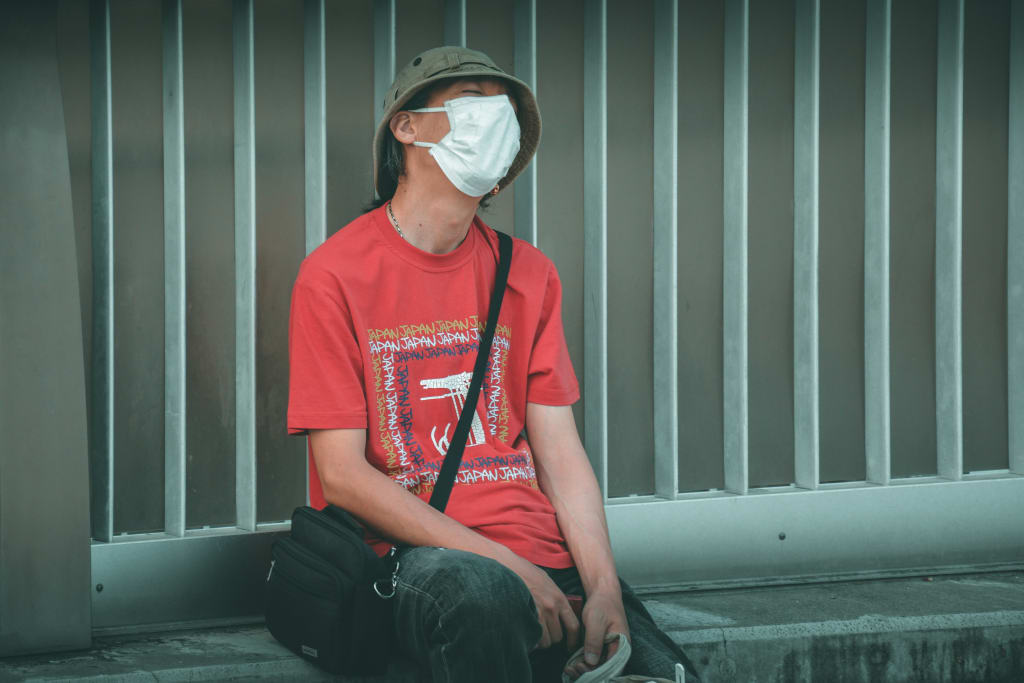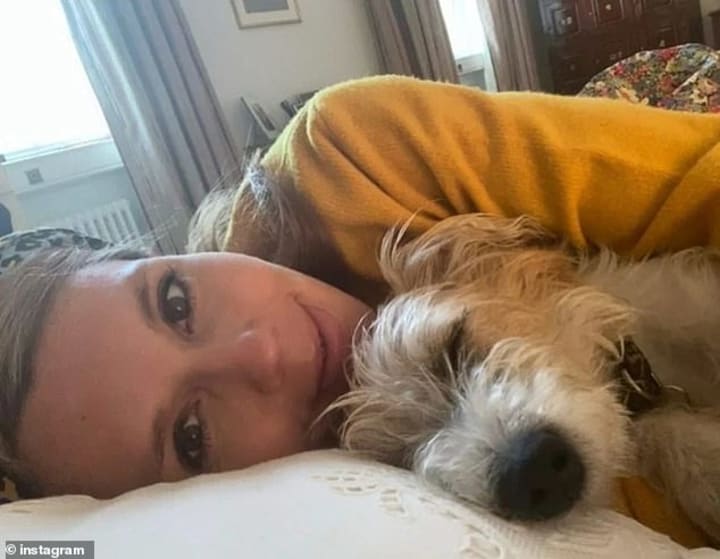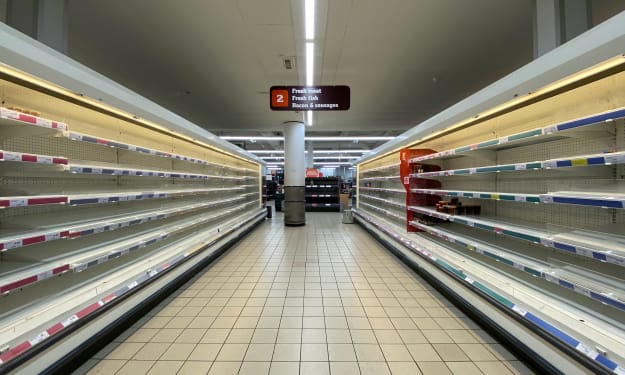This Is The Hard Reality Of Covid-19
The Coronavirus pandemic has the poor fear for their lives, highlighting once again how inequality kills.

Boris Johnson's pregnant fiancee Carrie Symonds while in self-isolation, on 27th of March posted a picture on Instagram of herself cuddling the couple's dog Dilyn short after the Prime Minister announced he had coronavirus.
In a post on Instagram from the couple's £1.3million home in South London, Carrie looked happy and healthy as she snuggled with Dilyn and wrote: 'self-isolating isn't so bad with this one'. Reported by The Daily Mail.

During these times, the terrible consequences of inequality are laid bare.
People at margins of society are at a greater risk of infection, including homeless people, those who don't always have enough food, people with limited access to proper sanitation and those with compromised immune systems. The coronavirus pandemic has the poor fear for their lives, highlighting once again how inequality kills.
Emily Maitlis was commended for an "extraordinary" contribution to BBC's Newsnight in which she questioned the deceptive rhetoric around the coronavirus crisis and rejected suggestions that the pandemic had same effects and impact on everyone.
The RTS award-winning journalist criticised ministers for implying that those who recovered from Covid-19 somehow revealed more fighting spirit than those who did not.
"You do not survive the illness through fortitude and strength of character, whatever the prime minister's colleagues will tell us,"
Those are Emily Maitlis' words during her introduction to Wednesday, April 8th, Newsnight's show.
Foreign Secretary Dominic Raab, who currently actin PM while Boris Johnson is in critical care at St. Thomas's hospital in London said he was sure the Prime Minister would pull through because "he's a fighter."
In her address, Maitlis also rejected suggestions that the worst consequences of the pandemic are affecting everyone equally.
"The disease is not a great leveller, the consequences of which everyone, rich or poor, suffers the same," the broadcaster said.
"This is a myth which needs debunking. Those on the front line right now, bus drivers and shelf stackers, nurses, care home workers, hospital staff and shop keepers, are disproportionately the lowest-paid members of our workforce. They are more likely to get the disease because they are more exposed."
She also added: "Those who live in tower blocks and small flats will find the lockdown a lot tougher. Those who work in manual jobs will be unable to work from home."
A crucial part of risk mitigation is social distancing.
While the rich are "retreating" to their houses in the countryside or are working from home to protect themselves, the poor simply can't do so. Not only are they unable to flee the virus; it is because they have to engage in jobs that put their lives at risk.
For the impoverished masses, overpopulation and the following crowding is a reality of everyday life. Social distancing is simply not a feasible option for people living in crowded shared houses or highly crowded areas or slums, using public transportation, and queueing in long lines for food and basic necessities.
Some well-resourced public schools could close much earlier than states funded schools. The switched to teaching their students online, which is great if your students come from comparatively well-off families with access to high-speed internet and computers at home. Some suggested that all schools moved to this system of schooling delivery for the span of the pandemic. And who knows how long that will be? This idea entirely misses taking into account our very segregated school system and the vastly different resources accessible to those they teach both at school and home. And I don't just indicate access to hard and software either.
Kids are not poor because of any of their own doing.
That is a simple fact that appears to be comprehensively missed on too many commentators and leaders who should know better. Kids are poor just because they were less fortunate at the birth lottery. These children were born into families with fewer resources and less opportunity to work their way around the world effectively-at least economically. This implies that a more financially privileged child probably often has parents who are better educated and more comfortable in the aspect of lesson plans and learning material.
The kids of less well-educated families correspondingly require the expertise and assistance of teachers more. And it is not solely the economically disadvantaged children who are at risk. All the kids who struggle with academic work, all those kids who find it more difficult to self-motivate will be left further behind if expected to learn online without someone supporting them. We devalue what teachers do at our most vulnerable children's peril.
The health and social consequences of the economic downturn produced by the coronavirus pandemic will be felt long after the measures of social distancing will come to an end.
By guaranteeing that most vulnerable people are adequately protected from the negative consequences of a downturn, the government can help reduce the devastating long-term repercussions that would otherwise be inevitable.
About the Creator
Anton Black
I write about politics, society and the city where I live: London in the UK.






Comments
There are no comments for this story
Be the first to respond and start the conversation.